The Future of War: A History
£9.60£10.40 (-8%)
For as long as there have been wars there have been fears about the next war. Where are the new dangers? What is the best defence? How might peace come about? This is the history of how over the last 150 years we have tried – rightly and wrongly – to predict war’s future.
‘Britain’s leading academic strategist … read this book’ Economist
‘Insightful and opinionated … expertly covers centuries of evolving mayhem’ Gary J. Bass, The New York Times
‘A bonfire of predictions … Freedman’s purpose in this wise book is to discern patterns in the way we have thought about war’s future’ Shashank Joshi, Financial Times
‘It reflects the author’s immense knowledge and wisdom. It should feed our humility, because it reminds us of mankind’s unlimited capacity for folly’ Max Hastings, The Times
Read more
Additional information
| Publisher | 1st edition (4 Oct. 2018), Penguin |
|---|---|
| Language | English |
| Paperback | 400 pages |
| ISBN-10 | 0141975601 |
| ISBN-13 | 978-0141975603 |
| Dimensions | 12.9 x 2.3 x 19.8 cm |

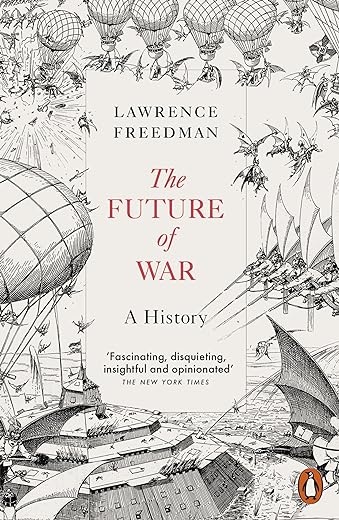



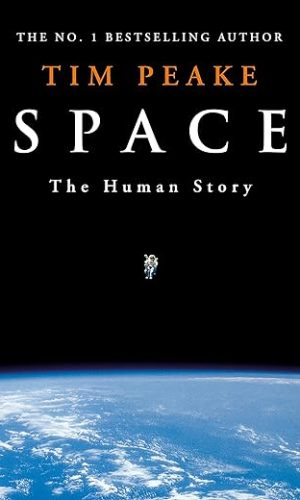
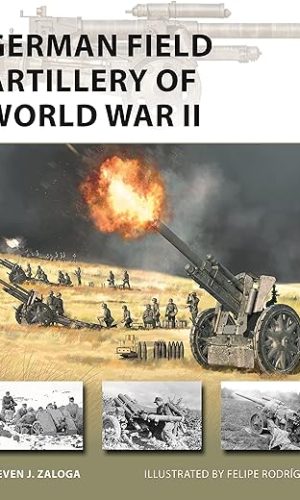

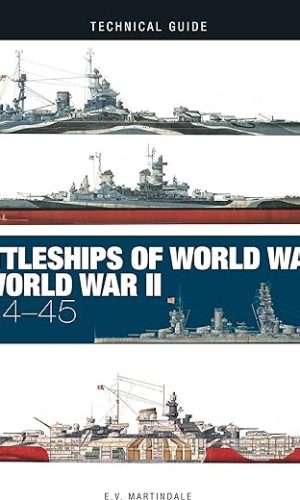
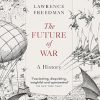
by Shahram Chubin
Christmas present asked for by my son, so he must like it!
by Ioannis Damianos
terrific read
by Dr Max McKeown
The book was advertised as ‘having a Library stamp on it’, well-it had brand new library sheet, ready for stamping when you borrow it, fixe to the flyleaf, not a mark on it.
I could not be more pleased, and when I read it I bet I am the first person to open it.
by Naguere
A lively history of how hard it is to predict what the next war will look like. Well written and particularly good on the factors leading to civil war.
by davidk
As always brilliant and insightful. Freedman makes his penetrating analyses seem like common sense.
by Bob
Lawrence Freedman is an excellent historian whose writing is always lucid and entertaining. All of his books on, for example, strategy, the evolution of nuclear strategy, war, Kennedy’s Wars and the Falklands War are indispensable if one wishes to better understand war and warfare. He was an excellent choice to sit on Chilcot. He was also Professor of War Studies at King’s College London. He wrote notes for Blair’s infamous Chicago speech that advocated intervention in overseas wars. In fact Freedman’s notes did not support this.
This book builds in parts on the author’s earlier Adelphi Paper. Freedman does not argue that large scale conventional wars will not occur in the future or that we shouldn’t prepare for them. Predictions of this kind are frequently found wanting. The international system is far too unstable to make predictions of this kind. Today suicide fanatics hit the headlines. These agents of terror can appear anywhere and at any time. Combating this threat is a job for the intelligence services and the police not the military. Irregular war dominates and as the author shows they are very perplexing. They pose questions that are extremely hard to answer.
In his latest work Freedman addresses several key issues using cases regarding war. For example, how do you define war today? Old definitions no longer apply. His does this affect legal issues connected with warfare. What today is a just war? Why have civil wars been neglected despite being particularly bloody?
The author discusses drug wars that kill thousands but are not regarded as wars. He argues, correctly, that war has been responsible for the creation of states, and that peace talks often achieve the opposite.
Freedman examines political and military planning for future conflicts. I can vouch for its complexity. Of course, they got it wrong pre-1914. When I examined the Staff College archives for the three decades prior to 1914, it was not surprising to note that the American Civil War was the centre of military studies. A detailed study of the Russo-Japanese war would have been very valuable but it was observed by only two British military personnel and in any case it was regarded as only applicable ‘to Asiatics’. The voluminous volumes of the entrepreneur Bloch were not translated into English for years after publication, and in any case hardly read. What military would pay attention to Bloch’s futuristic scenario? It should be noted that the German General Staff thought little of the work.
Planning for future wars is to enter a world full of fog and gross uncertainty. Read ‘On War’. If you happen to guess right it is largely luck. You get the nature of the conflict wrong, the tenacity of your opponent wrong even the weaponry wrong. For example, the rifle, that was initially provided for US troops in Vietnam was found to be wrong. IED’s in Afghanistan were not foreseen as a major killer. There are hundreds of other examples.
Too frequently we use analogies despite evidence that historical analogies are often erroneous. Historical parallels are as Dr Colin Gray has shown far more reliable and constructive.
To say that history does not teach us lessons is wrong, it can and it does but it has to be the right kind of history. What has to be avoided is to cherry pick bits of history to support a decision already decided upon. This is all too common. It was a central reason for the disastrous decision by Bush and Blair to invade Afghanistan. Years before,the actions of Nasser in Egypt were misconstrued by Eden as akin to those used by by Hitler. The word appeasement, one of the most misunderstood words around, filled the headlines.
Thucydides, Machiavelli, Voltaire and some eleven other major figures all said we can learn a great deal from a study of the past. Events like wars are never repeated exactly but there are aspects of war that are immensely valuable to planners. For example, there has been more than one so-called Cold War in history. Take out the nuclear weapon and they all had a lot in common. Athens and Sparta knew all about a long ‘cold war’.
Thucydides declared the past was an aid in the interpretation of the future. Gibbon said it was a useful register. Machiavelli said history was full of instructions which we would be silly to ignore. President Lincoln argued that the past was a treasure of wisdom that must never be forgotten. Hegel, Emerson, Rousseau and Churchill all believed we can learn from history. This reviewer believes that by studying history we learn about ourselves. We get a fuller understanding of humankind’s weaknesses and strengths. History warns us of the dangers of hubris and our proneness to be taken in. Used correctly history provides wisdom. Used incorrectly it reveals fool’s gold.
We forget when criticising the politicians and military governors made in the Great War that it was unique. The Kaiser told his troops they would be home before the leaves began to fall. No one realised that trench warfare would emerge to replicate the siege warfare of the past. And no one appreciated the importance of the force-space ratio on the Western Front. We entered the war, as did every nation, as blind and as unprepared as we would today if engaged in a nuclear war.
I was privileged to have Professor Sir Michael Howard as my tutor for my MA , and as my initial supervisor for my PhD. An outstanding military historian and brilliant lecturer who did not deny that lessons can never be learned from history. What matters is now you interpret those lessons. That is why he was one of the most fervent supporters of the mandatory study of military history by young army officers.
This is an excellent book that will repay careful reading . Above all, the author demonstrates the complexity of planning for future wars. Will insurgency remain the number one threat of will cyber-warfare take its place? What if a nuclear North Korea and Iran create a security crisis akin to that of post 1945? And what if America adopts an intense isolationist stance? A number of astute people in the US are already arguing in scholarly journals that this is a distinct possibility. One thing is certain, no longer is there a dominant model for future war.
MarK Twain said that while history may not repeat itself it does rhyme. The excellent historian John Lewis Gaddis said it is like looking in a review mirror. It helps you to know where you have come from and who else is on the road. As a historian of the Cold War he knew that what made it so very dangerous was that both sides simply did not understand each other. Michael Howard said America saw the Soviets as a force of cosmic evil. Yet many of the Soviet goals were traditional ones dictated by geography and history. As Jervis has demonstrated misperception reigned on both sides. A gross lack of history was manifest in the Gulf Wars. McNamara writes in his Memoir that America failed in Vietnam because we viewed the people and leaders of South Vietnam in terms of ‘ our own experience ‘. We also failed, he said , to understand the determination of the North Vietnamese. Profound ignorance of history and culture ruled Washington ‘s view of Vietnam.
History gives context and examples when it comes to thinking about the present world. It aids in formulating questions. History suggests what information is needed and how to interpret it. The good historian continually asks what happened and why? And Freedman is a very good historian. Above all, history is a process. It does not aim to provide definitive answers. History does however repeat itself in parallel circumstances for although characters and detail differ, often greatly, there are broad instructive parallels that can be drawn from almost every era of the past. This is not the same as analogies. Many of these are foolish. Although there has been great change in international affairs over the centuries, major themes in human political and spiritual life have not changed significantly. Decorative features have altered dramatically but values regards morality, politics have not in anything like the same degree.
The book has three parts covering: battle, peace , total war, the balance of terror, democracy and war, new wars, insurgency, terrorism, hybrid wars, cyberwar, robots and drones, climate change, and the future of war. There are notes, plus a bibliography.
by Dr Max McKeown
Strategy is about attempts to, deliberately and imaginatively, shape the future. History though, as Freedman observes, is equally made by those who know nothing of the future and very often precious little of the past, present or likely consequences of available actions.
Some are better than others but those of slow wit or dubious grasp may shape human history as much as those who blunder from error to disaster to conflict to war to genocide.
This is harsh medicine for those who seek, and see enlightenment, yet to enjoy peace it is better – and necessary – to see the world as it is been, is, and is likely to be.
Human nature is unlikely to change quickly but we can perhaps become a little better at understanding how to protect ourselves from the worst of which our species is capable.
by digger pete
Rating (three stars) is provisional as I have only sampled it. I’ve ordered books that intrigue me and now have a big reading backlog.